Fasika/Ethiopian Easter: Ethiopia’s Time for Faith, Family and Celebration
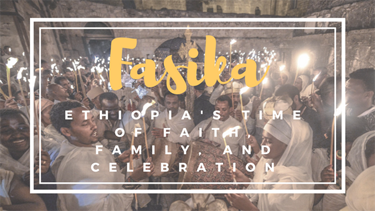
In Ethiopia, most holidays are centered around faith, family, and celebrations. This is also true for “Fasika” (Ethiopian Easter) or “Tinsae” (Resurrection). Ethiopian Orthodox Christians celebrate Fasika after fasting over 40 days just like Jesus did (Mathew 4:2).
As an Ethiopian who lived away from Ethiopia, I became interested in Fasika. I remember bits and pieces of this holiday since I celebrated it as a kid. However, wanting to learn more about the practices and traditions surrounding Fasika, I did some research and asked other Ethiopian families.
Fasika is probably one of the most important (if not THE most important) holidays for Ethiopian Orthodox Christians. In the Ethiopian Orthodox Church, Fasika–the celebration of the death and resurrection of Jesus Christ– is more significant than Gena—the celebration of Christ’s birth.
As all Christians do, Ethiopian Orthodox Christians strongly believe that Jesus died on the cross and rose again, thus fulfilling the word of God. They believe Jesus claimed victory over death, hell and the grave taking the punishment for all of humanity’s sins so that we can abide with God the Father. This is Faith worth to celebrate!
The Ethiopian Orthodox Church uses its own calendar to determine what day Fasika will fall on. The calendar is the principal calendar used in Ethiopia and also serves as the liturgical year for Christians belonging to the Ethiopian Orthodox Tewahedo Church.
The Ethiopian calendar is a solar calendar which in turn derives from the Egyptian Calendar (Orthodox Church of Alexandria). Like the Julian Calendar, it adds a leap day every four years without exception and begins the year on August 29 or August 30 in the Julian Calendar.
A gap of 7–8 years between the Ethiopian and Gregorian Calendars results from an alternative calculation in determining the date of the Annunciation. And because of the differences in the calendar, this holiday usually falls 1-2 weeks after the Easter holiday in the US. But this holiday lasts much longer than in the West.
Tsom (Lent)
There are many instances where Ethiopian Orthodox Christians fast.
Officially, there are 7 fasting periods ordained in the Fetha Negast (Book of Kings). There are 180 fasting days in total which are obligatory for all Orthodox Christians. Normally, Wednesdays (to commemorate the day of Pilate’s judgement on Jesus) and Fridays (to commemorate the day Jesus was crucified) are days of fasting.
Abiy Tsom (the big fast) however, is the most important in Ethiopia. This period of fasting and commemoration starts 55 days before the actual Sunday of Fasika. During this time, believers enter into a time of fasting (Tsom) where they avoid all meats and dairy.
If the fast is strictly followed, Tsom:
- is applicable to all persons older than 13 years of age
- involves abstinence from meat, dairy products and eggs (and many will abstain from fish too)
- instead, fasters will eat meals with lentils and vegetables
- only one meal a day is eaten, taken in the evening or after 3:00 pm (when church services end). Before that, no food, drink nor even water is to be consumed.
- starting on Good Friday to Easter Sunday (i.e. late on Saturday night), there is total abstinence of food.
- Daily Services are conducted in all churches from morning to 2:45 pm.
- Priests regularly attend night services starting at midnight up to 7 am.
Although it may seem difficult, with the variety of vegan Ethiopian dishes available, it is not really that hard.
Hosanna (Palm Sunday)
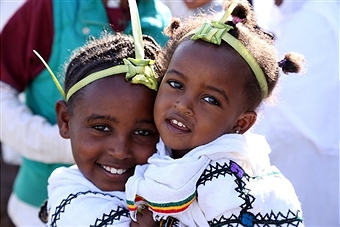
The celebration of Hosanna (known as Palm Sunday in the US) is the week before Ethiopian Easter. Throughout the city you will see parades or groups of people carrying palm branches, wearing headbands of palm leaves as they sing Hosanna.
This is a commemoration of Christ entering Jerusalem as found in Matthew 21:1-11, Mark 11:1-11, Luke 19:28-44, and John 12:12-19. Jesus Christ was greeted by the masses that were in Jerusalem for Passover with singing and waving of palm branches as a king would have been.
Tselot Hamus (Prayer Thursday)
The Thursday before Jesus was to be crucified, he gathers his disciples for a meal, the last supper, and teaching before leaving to go to the Garden of Gethsemane to pray.
Tselot Hamus, as part of the Ethiopian Easter celebration, is a remembrance of those events. Many will attend a midday mass where the priests will teach (John 13–17) and act out the last supper (Matthew 26:20–30; Mark 14:17–26; Luke 22:14–20) just as Christ had done the Thursday before his crucifixion. Also, the leading priest washes the feet of twelve fellow priests who represent the disciples (John 13:3–20).
Families will then go home and partake in Gulban. Gulban is a dish made of boiled cracked wheat berries and split fava beans with a bit of mitmita or awaze to spice it up. This dish represents resurrected life. The wheat berry, although dead, when buried in the ground brings new life.
Skilet (Good Friday)
Skilet or Good Friday is a day to commemorate the crucifixion of Christ. This day is filled with fasting and prayer. Many churches hold services all day.
Saturday
The Saturday before Fasika is very busy for many households. This day is a preparation for Fasika. The families will prepare doro wat and other foods to break the fast, as well as bake dabo to get ready for the next day. People will also travel from remote areas to spend time together with family on this special holiday.
After much of the preparation is done, families attend an evening mass til 3 AM in the morning. The churches will be decorated for the celebration and completely full of people dressed in their white hager libs.
Fasika Sunday
After the evening service, parishioners will head back home to break their fast.
The elder in the family offers a prayer and breaks the dabo for everyone. The adults will share in the Tella, a dark beer brewed from barely and Gesho (a hops like woody shrub), and Tej (honey wine brewed with Gesho, honey, and water.
These brews can take up to 3 weeks to prepare but are a staple of many celebrations. If you don’t have the time or the skills to make your own, you can order a beautiful bottle of Tej from Bilquis-Tej.com.
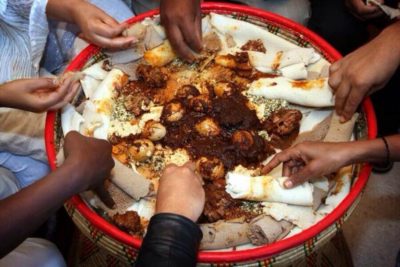
And of course, no Ethiopian celebration would be without doro wat and the traditional coffee ceremony. Doro wat is part of every major celebration and Ethiopians consider it the national dish of Ethiopia.
Most cooks in Ethiopia don’t really measure and the recipes are handed down from generation to generation just by word of mouth and practice. But I finally had my mom measure and develop a recipe that is amazing! I will be using it this Fasika and want to share it with you.
Doro Wat Recipe
Ingredients
2 large onions, Minced
1 cup Ethiopian butter (kibe)
1 1/2 tbsp tomato paste
1/2 cup berbere
4 tsp salt
1 tbs garlic ginger paste (recipe follows)
1 small chicken, cut into pieces
3 cups water
1 tsp cardamon powder
6 medium hard-boiled eggs
Instructions
1. Finely mince onions in a food processor.
2. Add to large pot and cook on high heat, stirring frequently. Stir as juices evaporate. Cook until onion is a dark brown. Be sure to scrape the bottom of the pot to avoid sticking and burning.
3. Add Ethiopian butter, tomato paste, berbere, and salt.
4. Decrease heat to medium and continue stirring frequently until mixture becomes a very dark, dark red.
5. Add garlic ginger paste and continue cooking for another 5 minutes.
6. Add chicken pieces and cook for about 10 minutes.
7. Add 1 cup of water and continue cooking for about 5 minutes.
8. Decrease heat to low and add another 2 cups of water. Cover and continue cooking for another 5 minutes.
9. Add cardamom powder and continue to simmer for 5 minutes.
10. Peel hardboiled eggs and cut horizontal slits all the way around the egg white.
11. Turn off heat and add eggs.
Garlic Ginger Paste
1 part ginger
4 parts garlic
Peel garlic and ginger. Blend in a food processor or blender until a smooth paste forms. You may need to add a little water to reach the right consistency.
Serve the delicious and spicy doro wat with injera and get ready to celebrate a wonderful Fasika.
There are so many great memories of Fasika for those who lived in Ethiopia. From getting new hager libs to wear on Ethiopian Easter to staying up really late or waking up early to break the fast with the many family members that are in town.
I hope you make some great memories of your own and that your Fasika is full of faith, family, food, and great celebration. I would love to hear about what special traditions you have for Fasika.


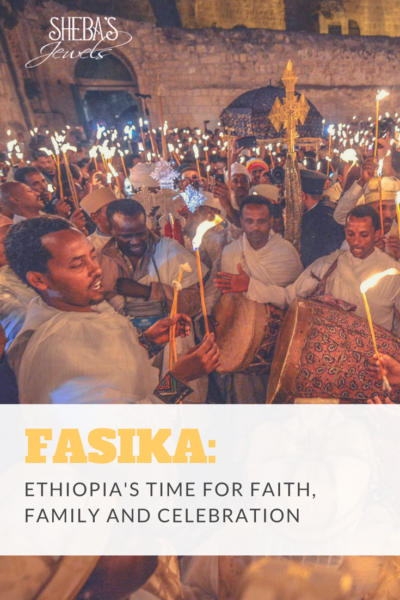


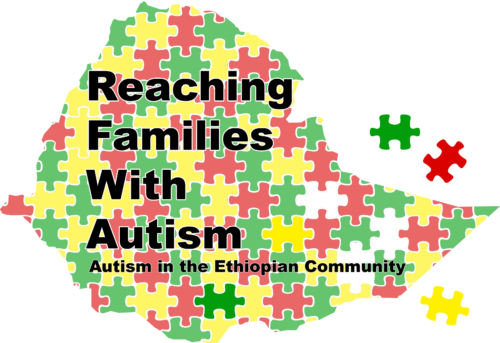

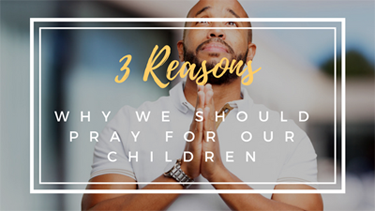
[…] which is celebrated on the Orthodox calendar, and falls on April 19th in 2020. During Lent (tsom in Ethiopia), many Orthodox Christians in Ethiopia abstain from eggs, meat, and all dairy. This makes the […]